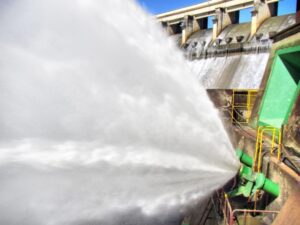“We believe that resorting to legal action is regrettable, however imperative to protect the integrity of the agreements and secure our financial stability.”
Rand Water would like to emphasize that our preference has always been to engage in constructive dialogue and find mutually beneficial solutions to the challenges faced by municipalities. However, the magnitude of the outstanding debts has reached a critical level, requiring urgent action. “We therefore urge all municipalities, including the City of Tshwane, Emfuleni LM Rand West LM, Merafong LM, Ngwathe LM, and Govan Mbeki LM to recognize the gravity of the situation and take immediate steps to rectify their financial obligations. “ The collective overdue debt of these municipalities is over R4 billion. It must be noted that the sustainable provision of clean and reliable water supply to millions of South Africans hinges on the responsible fulfillment of bulk water purchase agreements. Rand Water maintains unwavering dedication to its customers by guaranteeing a sustained provision of high-quality drinking water, thus ensuring the sustainable security of its water supply. “We, therefore, implore all stakeholders to treat this matter with the utmost urgency. We urge ALL consumers to continue using water sparingly.”
Rand Water is deeply concerned by the escalating debts owed to it by municipalities and the failure of municipalities to respect their bulk water purchase and debt settlement agreements.
Rand Water, South Africa’s leading water utility provider, operates without any form of allocation from the national fiscus, thus solely relying on funds collected from its customers, primarily municipalities.
Rand Water’s financial sustainability which impacts on the current and future provision of water depends on municipalities paying for the water they receive from Rand Water.
Rand Water is facing a significant challenge in relation to outstanding debts owed by various municipalities. Non-payment of bulk water by municipalities vastly threatens Rand Water’s financial position and is a direct threat to its medium and long-term sustainability, thus, to the sustainable provision of bulk water.
“We have relentlessly attempted to resolve and accommodate non-paying municipalities and entered into bilateral engagements and agreements through Intergovernmental Relations forums. However, the situation has not improved, and we have regrettably reached a deadlock,” read the statement released by Rnd Water.
Rand Water finds itself with no alternative but to pursue legal recourse through court proceedings to enforce the adherence to the existing agreements.






